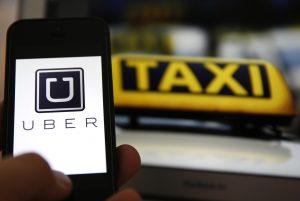 Uber is defending its business model in Europe’s highest court today. The Court of Justice of the European Union (ECJ) could label Uber a transport company rather than a digital service, a designation that could hobble the company. That ruling would subject the company to stricter rules on licensing, insurance and safety. Judges in Luxembourg heard oral arguments in the case today.
Uber is defending its business model in Europe’s highest court today. The Court of Justice of the European Union (ECJ) could label Uber a transport company rather than a digital service, a designation that could hobble the company. That ruling would subject the company to stricter rules on licensing, insurance and safety. Judges in Luxembourg heard oral arguments in the case today.
The ride-hailing app expanded into Europe five years ago. As it disrupts existing business practices, it has faced protests, bans and legal action in numerous countries. The company has faced local or national bans on at least some of its services in Germany, Belgium, the Netherlands, Spain and Hungary. In October, a tribunal in London said its drivers were entitled to minimum wage and paid holidays.
In 2014, Elite Taxi, a Barcelona-based association of independent taxi drivers, accused Uber of running an illegal taxi service via its UberPOP service. The association argues that Uber has an unfair advantage because it does not bear the same costs that taxi companies face. Due to the way the company is structured now, it is not bound by the strict local licensing and safety rules that apply to some of its competitors. The lawyer for the association, Montse Balague Farre, said to the court, “If there is a transport service provided, a company should not be able to hide behind the thin veil of a different service.”
Uber says it is an “information society services provider” that matches drivers with passengers, a designation that should give it protection under existing EU laws. Online-service providers have the freedom to provide services anywhere in the EU without facing disproportionate licensing requirements. The European Free Trade Association (EFTA), the Netherlands, and Estonia say the company merely provides a connecting service between the passenger and a driver. Uber has its European headquarters in the Netherlands.
An ECJ adviser is expected to give a non-binding opinion in the coming months prior to the judges giving their verdict. A ruling isn’t expected until next year. A loss in the case could result in app-based startups facing tougher regulation in Europe. Online home rental company Airbnb and food delivery company Deliveroo are closely watching to see how the case plays out.
